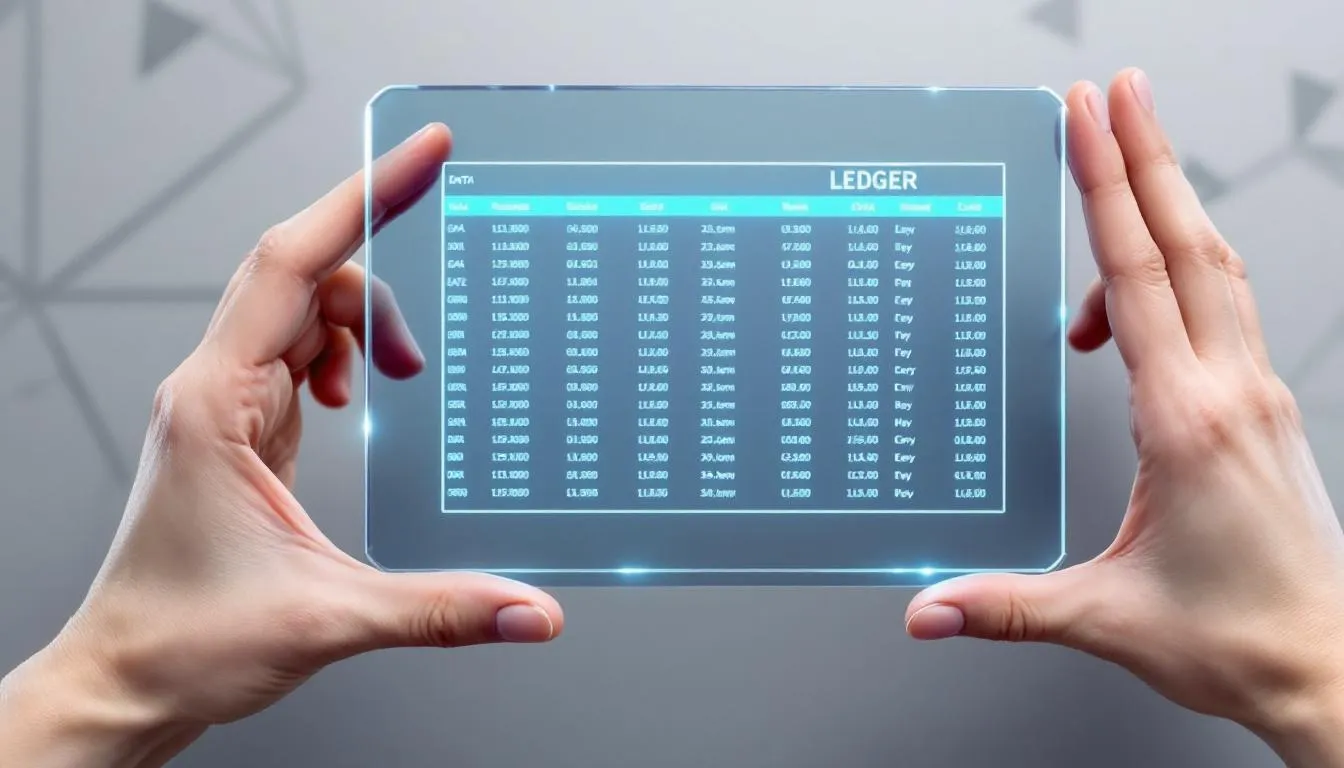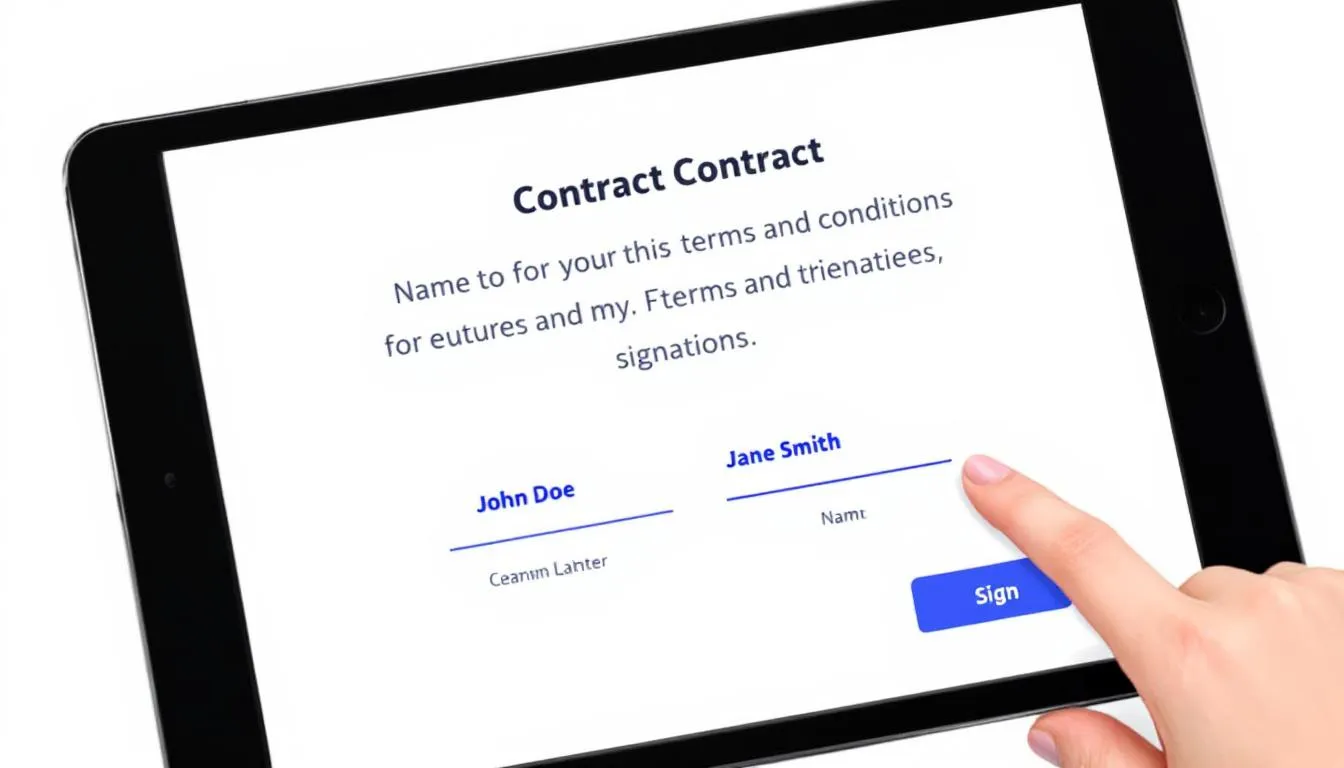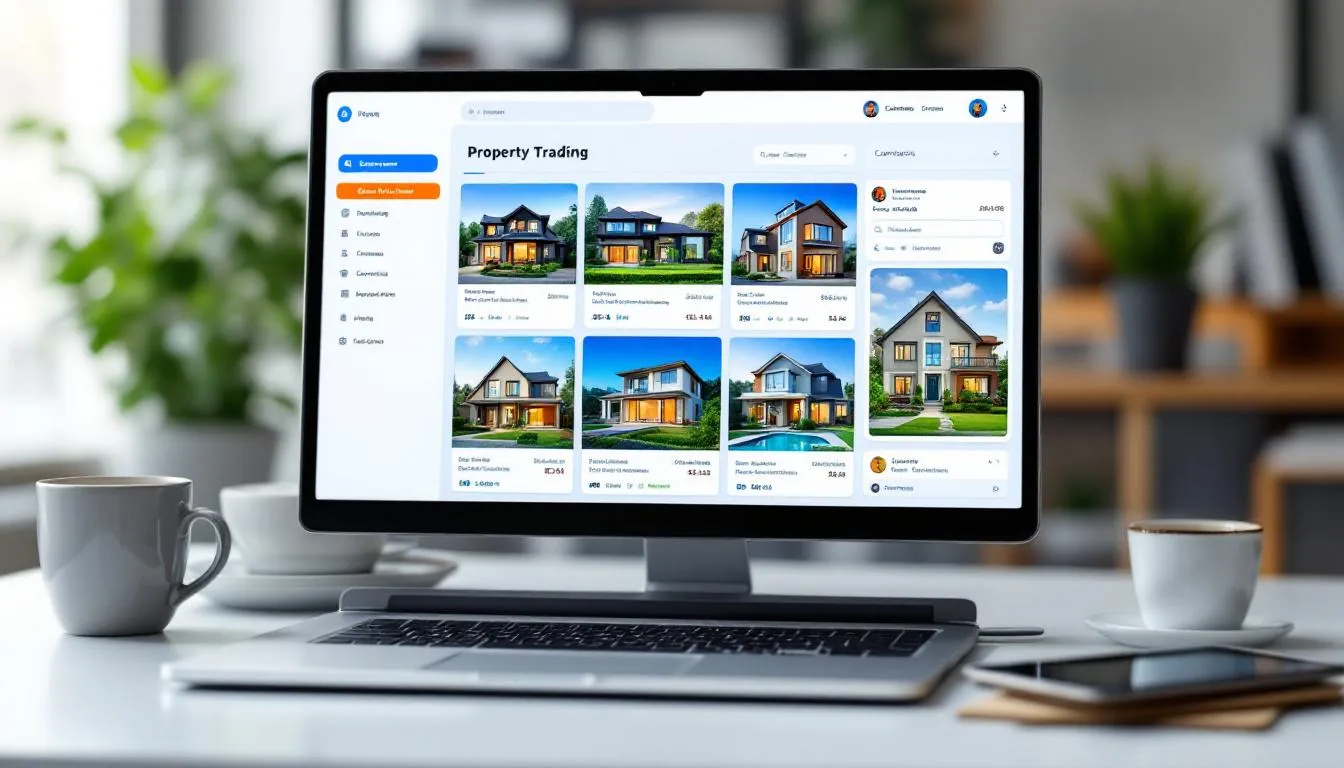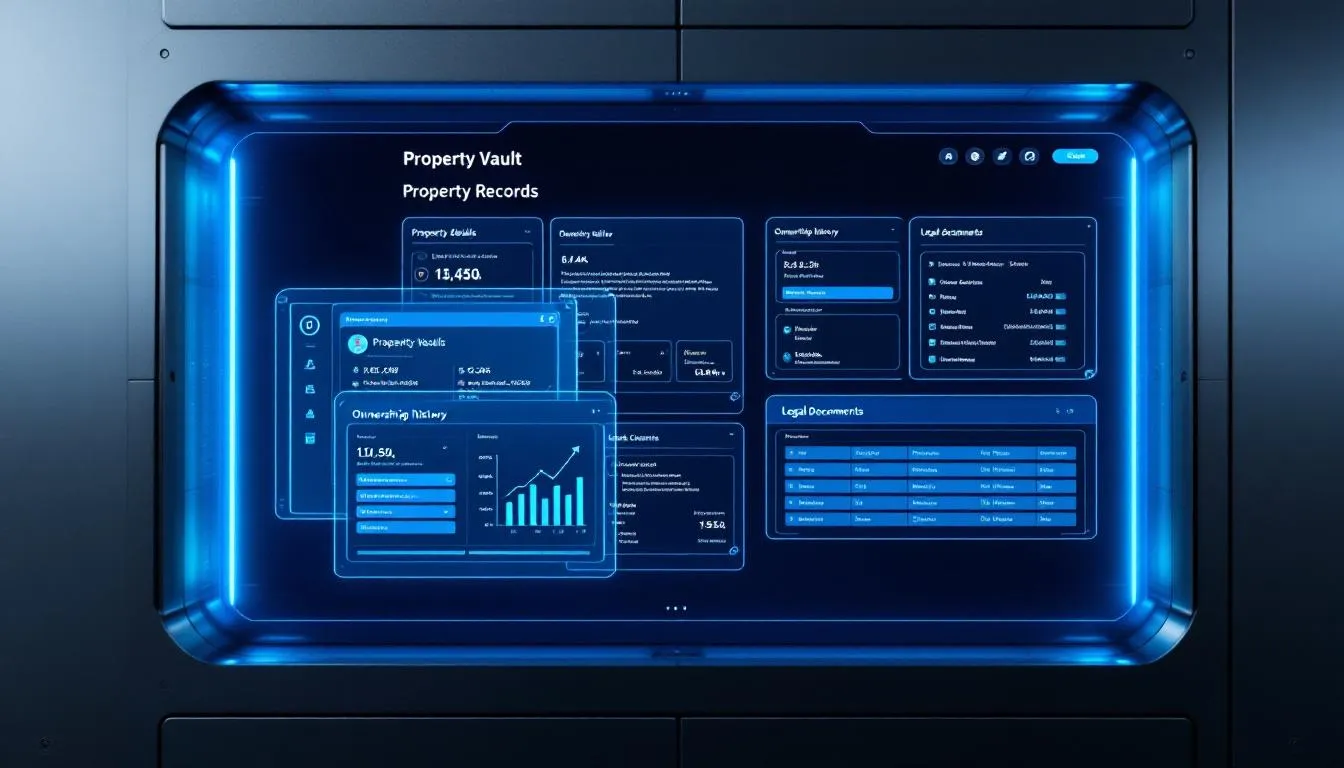- 🏢 Deloitte cites a $270M commercial real estate portfolio already tokenized and traded digitally.
- 📊 32% of institutional investors rank blockchain transparency as a top value driver in CRE.
- ⚖️ In the U.S., most tokenized property is classified as a security, complicating regulation.
- 🧠 Only 14% of U.S. real estate professionals feel “very familiar” with blockchain technology.
- 🌇 Las Vegas emerges as a promising market for blockchain-powered commercial real estate activity.

Blockchain in Commercial Real Estate: Hype or Future?
Most commercial real estate (CRE) deals today still use old methods. This means piles of paperwork, many middlemen, long closing times, and not much access for regular investors. But blockchain, the technology behind cryptocurrencies, is starting to show it can change this area. What people once called hype is now showing real benefits. We will look at how blockchain is changing commercial real estate, from tokenized properties to clear deal flows. This will show what it means for investors, developers, and buyers.

Understanding Blockchain in Real Estate
Simply put, blockchain is a digital record system not controlled by one person or group. It lets entries, like transactions or records, be checked and added across a shared network. Think of it as a giant public spreadsheet where every participant can see updates in real time — and no single individual or institution can alter the history without network consensus.
In a traditional real estate deal, trust is kept through many official steps: appraisals, title searches, escrow accounts, and legal teams. Blockchain reduces these problems. It uses automatic checks instead of manual ones, which means no single party controls the process. Every change or transaction gets a time stamp and is digitally signed. It is almost impossible to change without anyone knowing. This resistance to fraud is very important for high-value assets, such as commercial real estate.
In the future, a building’s history—from construction permits to lease agreements—could be openly available on a blockchain. It would be instantly ready for everyone involved during checks or when buying. The technology changes not just how data is kept, but also how trust is maintained in real estate investment.

The Rise of Tokenization
Tokenization is perhaps the most new and important way blockchain is affecting real estate. Simply put, it refers to converting physical assets into digital tokens on a blockchain. Each token represents ownership rights or a partial claim over the asset.
Let’s say a $20 million commercial building is tokenized into 100,000 digital tokens. Each token might represent 0.001% of the asset. Investors can now buy, sell, or trade these tokens much like stocks. Most traditional real estate investments need at least tens or hundreds of thousands of dollars. But tokenized offerings make it much easier to get started.
A 2023 Deloitte study showed a $270 million commercial real estate portfolio in the U.S. was tokenized and traded among big investors using blockchain platforms. This happened without the long, drawn-out traditional ways. This example shows it can work and can grow for digital real estate markets.
Benefits of tokenization include:
- Increased liquidity: Investors can easily exit positions by trading tokens on secondary markets.
- Global accessibility: Borders disappear — anyone with an internet connection and a digital wallet can participate.
- Reduced overhead: No need for brokers, lengthy verifications, or massive legal interventions.
- Fractional ownership: This opens up commercial real estate. Before, mostly big firms and wealthy people could invest.
Tokenization acts as a door. It changes property investment into a flexible, tradeable financial asset. And this change is already happening.

Smart Contracts in Real Estate Deals
Smart contracts are agreements that run automatically when certain conditions are met. They are part of blockchain networks. They act as digital helpers, automating tasks that people would normally do.
In real estate, smart contracts can automate:
- Escrow releases: When payment is confirmed, ownership documents are automatically transferred.
- Lease agreements: Terms like rent, duration, renewal clauses can be written into a smart contract that auto-executes as time progresses.
- Payment distribution: Rent or profits can be divided among multiple token holders without manual processing.
Picture this: You’re closing on a commercial office space. Instead of relying on banks, attorneys, or escrow agents, a smart contract holds the buyer’s payment in digital escrow. Once all ledger conditions — like title verification, inspection reports, and financing approvals — are met, it transfers ownership and releases payment, instantly and securely.
This automation could greatly cut down transaction time, from months to days or hours. It could also lessen arguments and reduce both running and legal costs. And it makes things clearer. All parties can view contract terms on the blockchain and check if rules are being followed in real time.

Making Real Estate Easier to Sell with Blockchain
One of the biggest problems in commercial real estate is how hard it is to sell quickly. It is not easy to sell high-value properties quickly. Sellers wait for qualified buyers, and deals often fall apart due to financing delays or inspection disputes.
Blockchain platforms that hold tokenized assets are solving this problem. Digital tokens can be traded directly between people. This makes the investment an asset that is easy to trade, more like stocks in a trading account than property recorded on paper.
RealT, a platform focused on tokenized residential and commercial properties, has processed over $80 million in tokenized real estate transactions, as recently as 2024. Investors can earn rental income based on their share. They can also trade their shares on digital marketplaces. This ends the long wait and worry that traditional CRE investors often deal with.
Main benefits of easy selling include:
- Global buyer pool: Traditional deals only reach local buyers. But blockchain makes it available to buyers worldwide, 24/7.
- Faster settlements: Digital trades clear in minutes, not weeks.
- Clear value: Ongoing market data lets investors price assets based on current market value.
- Flexibility: Investors can exit partially, selling just a few tokens instead of an entire investment.
This change, from being hard to sell to being easy to sell, could greatly change how commercial real estate investments are handled and spread out.

Financing Commercial Real Estate With Blockchain
Blockchain’s advantages are not just for asset management. They also affect how commercial real estate projects are funded.
Traditionally, CRE financing involves multiple layers of banks, private investors, and structured debt instruments. Each layer involves contracts, compliance, record-keeping, and costs. Blockchain-based financing makes this whole process simpler by providing:
- On-chain fundraising: Developers can issue tokens that stand for ownership or debt shares. These are then sold directly to investors.
- Transparent yield tracking: Smart contracts can calculate and distribute Dividends, REIT returns, or rental income on-chain.
- Records that cannot be changed: Every dollar raised or paid out can be checked and is secure.
Fidelity Digital Assets’ 2023 research shows that 32% of big investors said “improved transparency in cash flow and reporting” was a main reason for using blockchain platforms in CRE. This transparency is very helpful for fund managers. They need to show LPs how and where returns are made and paid out.
Blockchain-backed financing makes it possible for smaller, quicker ways to get money. It also keeps the data security and rules of traditional lending and investing practices.

Better Title Security and Fraud Prevention
Checking titles often slows things down in commercial deals. Old methods involve checking county records, title insurance, and lawyers looking closely at decades of ownership documents to confirm who owned it clearly.
Blockchain can remove many of these problems. Ownership history, liens, and other claims can be stored on the blockchain. This means buyers and lenders can do title checks instantly and automatically.
For example, Cook County, Illinois — one of the largest jurisdictions in the U.S. — has experimented with blockchain title registries. The pilot program looks at whether listings on the blockchain could help speed up deals and lower title insurance costs.
Blockchain provides:
- Tamper-proof records: Once on the blockchain, records are digitally signed and cannot be changed.
- Instant verification: Ownership changes and encumbrance checks can happen in seconds.
- Fraud prevention: It becomes almost impossible to try duplicate sales or change deeds because the system is open for all to see.
In markets where there are often fraudulent deals or public records that are not perfect, this could be a big step forward in both security and ease of use.

Regulations: Playing Catch-Up
Even with much progress, blockchain real estate is still in unclear legal areas, especially in the United States. The SEC sees many tokenized real estate offerings as securities. This means many complex rules must be followed under U.S. securities law, such as Reg D and Reg S.
Countries like Germany, Singapore, and Switzerland have led the way in creating rules for blockchain real estate investment. These places often allow for easier ways to get started, ways to protect investors, and clear rules. These are important for bringing in money from other countries.
In the U.S., progress is happening but slowly. There's an increasing push from within the industry for clearer policies, but change takes time. Right now:
- Tokenized properties must meet securities exemptions: Most are available only to accredited investors under current law.
- KYC and AML protocols are mandatory: Platforms must check investors for rules and risk.
- Secondary trading is limited: Many platforms limit trading of these tokens. They do this unless they have the right licenses to avoid legal problems.
As legal and financial rules catch up, a mix of solutions will likely be common. These will work partly within traditional rules and partly on blockchain for the near future.

Why Blockchain Isn’t Mainstream Yet
Even with all these improvements, widespread use is slow, and for good reason. The real estate sector is known for being careful and not liking risk, especially when large sums of money are involved.
A 2023 National Association of Realtors (NAR) Technology Survey found that only 14% of real estate professionals felt “very familiar” with blockchain. This lack of understanding of the technology is a big hurdle.
Other problems include:
- Technical complexity: Both buyers and sellers may struggle with wallets, private keys, or token contracts.
- Smart contract weaknesses: Badly written code can lead to security breaches, as seen in the wider DeFi market.
- Data privacy concerns: Public blockchains may expose more transaction data than desired in commercial deals.
- Unsure how systems will work together: Connecting blockchain systems with old title record systems, banks, and insurance firms is not easy yet.
Until more education happens and rules become clearer, many firms will wait on the sidelines. They will carefully watch the space change.

Spotlight on Las Vegas: A Blockchain-Ready Market?
Las Vegas, known for its quick changes and new ideas, is in a good spot to lead the next wave of blockchain-powered commercial real estate deals. The market already has strong growth in apartments, commercial properties, entertainment areas, and off-Strip rebuilding projects. This makes it a great place to test new digital ideas like property tokenization.
Steve Hawks, a real estate expert in Las Vegas, says blockchain gives local investors new ways to get good assets that were once too hard to reach. For example, a boutique hotel project on the Strip could be split into 10,000 tokens sold to community-based investors — keeping value local while expanding access.
The city has a mix of property types—from retail stores to short-term rental units. These are good places to try out blockchain systems that offer speed, partial capital, and transparency. And Nevada’s more open approach to tech startups makes new rules easier to create there, compared to states like California or New York.

How to Start Investing in Blockchain Real Estate
For first-time investors who want to get into blockchain real estate, here’s a good guide to start:
Research the platform 🧠
Choose verified, regulated platforms like RealT, SolidBlock, or Securitize. Look for track records, audits, and team transparency.Know the asset 🏢
Always check that your investment token is backed by physical property. This means it should be a token that makes rental income or grows in value.Understand the investment model 💡
Are you buying equity, debt, or a yield stream? Read the smart contract or offering documents to understand your rights.Start small 💰
Fractional tokens let you test with little money. Think about spreading your money across several properties.Seek local expertise 🤝
Work with professionals familiar with both blockchain and commercial real estate, like Steve Hawks in Las Vegas.
Tokenized real estate is promising but still niche. Learn as much as you can. And be careful with every deal.

Will Blockchain Replace Traditional Real Estate Transactions?
It’s unlikely blockchain will completely replace traditional systems anytime soon. Instead, a mix of old and new is coming. This means using smart contracts and token registries to work with, not replace, legal documents, appraisals, and banking systems.
This change lets the industry use the speed and security of blockchain. But it also keeps the familiar ways and protections of old real estate law.
The goal is not change just for the sake of changing. Instead, it is providing more value: faster closings, better investor access, clear records, and fewer costly middlemen. Those who adapt and use new ideas early will likely have an advantage as the market changes.
So, Hype or the Future?
The answer lies somewhere in between. Blockchain will not make brokers, deeds, or cash useless right away. But it is clearly changing how commercial real estate is bought, sold, financed, and managed.
Platforms are already moving billions in assets through tokenized offerings. Smart contracts are handling rent distributions. Investors want more transparency, and blockchain is providing it. For professionals in active markets like Las Vegas, understanding blockchain real estate is not optional. It is a smart move.
Now is the time to learn more, check the platforms, connect with experts, and find chances that fit this changing space.
Citations:
Deloitte. (2023). Blockchain in commercial real estate: Tokenization as a growth driver. Fidelity Digital Assets. (2023). Institutional Investor Sentiment Toward Digital Assets. Retrieved from Fidelity Digital Assets
National Association of Realtors (NAR). (2023). Technology Survey. Retrieved from NAR Research
RealT. Company Statements (2024). Retrieved from RealT

